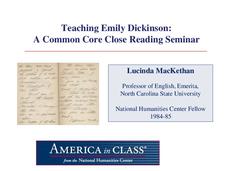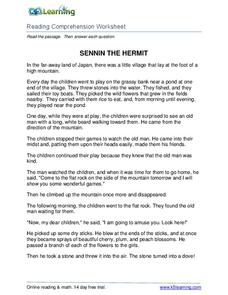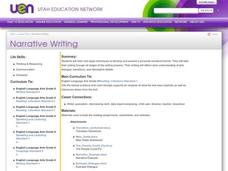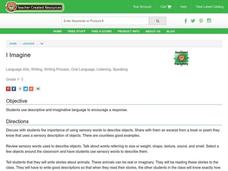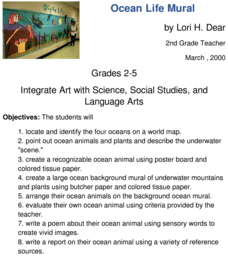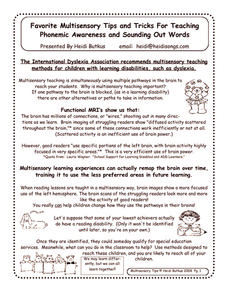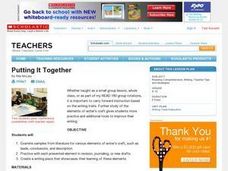National Humanities Center
Teaching Emily Dickinson: A Common Core Close Reading Seminar
Three of Emily Dickinson's poems, "I like to see it," "Because I could not stop for Death," and "We grow accustomed to the Dark," provide instructors with an opportunity to model for class members how to use close reading strategies to...
K5 Learning
Humming Birds
Seeing a hummingbird in the wild can be a magical experience. Learn more about these delicate members of the animal kingdom with a short reading passage, complete with four short-answer questions.
K5 Learning
Sennin the Hermit
Introduce learners to the magical Japanese hermit named Sennin with a reading response activity. As fifth graders finish the story of Sennin and his mystical powers, they answer four short-answer questions.
K5 Learning
Queen Hulda and the Flax
Choosing humility over outstanding wealth can be beneficial in the long run. Elementary pupils practice reading comprehension with a short fairy tale about Queen Hulda and her gifts to a poor shepherd, and demonstrate their ability to...
K12 Reader
Add Interest with Synonyms
Kids add interest to a paragraph about a day at school by replacing flat, over-used words with synonyms.
August House
The Stolen Smell
Some smells are better than others! Explore your sense of smell with a series of activities based on the Peruvian folktale, The Stolen Smell. With exercises about phonics, counting, cooking, art, and drama, the lesson is a well-rounded...
Curated OER
Maniac Magee: Found Poem
Instruct your readers to scrounge through the pages of Maniac Magee in search for descriptive passages or words they may use to write poetry. As they look for meaningful, sensory descriptors in Jerry Spinelli's novel, readers connect to...
Curated OER
Car For Sale!
Car For sale! In this GED prep lesson, writers develop a classified advertisement to sell a car. After a discussion of precise words and phrases, telling details, and sensory language, sellers draft their ad for review, revision and...
Curated OER
Narrative Writing
Binoculars are used as a metaphor for good descriptive writing. Class members first view a small picture and then an enlarged view of the same image in which the details come into focus. Next, learners examine a paragraph lacking sensory...
Dream of a Nation
Writing a Narrative Essay
Imagine using narrative essays to encourage change. This multi-week unit plan does just that. After reading a series of articles from Tyson Miller's Dream of a Nation: Inspiring Ideas for a Better America, class members examine the...
Curated OER
Oceans: A Sensory Haiku
Students create an ocean haiku. In this haiku lesson, students use their five senses to write a haiku. Students watch videos about the ocean, make a sensory portrait, and create a class haiku.
Curated OER
I Imagine
Students discuss the importance of using sensory words to describe objects; talking about words that refer to size, shape, texture, sound, smell, etc. They select a few objects around the classroom and use sensory words to describe.
Curated OER
Ocean Life Mural
How many oceans can you name? First, have learners try to name as many oceans as they can, and then have them locate and identify the oceans on a world map. They create a recognizable ocean animal using poster board and tissue paper....
California Education Partners
Covers by Nikki Giovanni
Over three days, scholars listen to and read the poem, "Covers" by Nikki Giovanni. Learners complete a graphic organizer by sketching their visualizations from each stanza then discuss their pictures with a peer. Pupils answer...
California Federation of Chaparral Poets, Inc
Poetic Devices
Have everything you need to know about the elements of poetry with a nine-page handout. Split into four categories—word sounds, meanings, arrangement, and imagery—budding poets may reference terms, read definitions, descriptions, and...
Curated OER
Can You Figure Language?
Eighth graders study similes and metaphors and how to explain and create them. After a lecture/demo, 8th graders access websites and worksheets imbedded in this plan to create their own writing.
Curated OER
Narratives
Add to the narrative writing experience. Elementary or middle school writers listen to the teacher read a descriptive passage, then reread the same passage silently. They highlight sensory details and figurative language, then orally...
Curated OER
Come To Your Senses
Write narratives that include ideas, observations, or memories of an event or experience, and be sure to use concrete sensory details! Groups utilize a few of the famous I Spy books in order to create narratives that utilize sensory...
Curated OER
Lesson Plan 12: Writing With All Your Senses
What does an ice cream sundae sound like? Challenge young writers to move beyond visual descriptions and craft details that appeal to all five senses. The examples provided by the script in this resource show pupils how to create rich...
Curated OER
Printable Story Starter: The Get-Away
This fun, creative writing prompt invites young writers to continue the story of Boe and Tim, who discover a hot air balloon while escaping from their big sisters. The worksheet provides a space where learners can finish the middle and...
Curated OER
Sense Poetry
Access your young poets' senses and emotions with this activity, which guides them through the process of writing a "sense poem." After working on a sense poem as a class and modeling the procedure, individuals work on their own poems...
Hawaiʻi State Department of Education
Chiaroscuro Apple
I absolutely love this idea. Kids explore the chiaroscuro technique as they draw, then bite, then write about an apple. They discuss chiaroscuro, depth, shade, perspective, and texture. Then they draw their apples, write a descriptive...
Curated OER
Phonemic Awareness and Sounding Out Words
Although designed for children with learning disabilities, such as dyslexia, the multi-sensory tips and tricks included in this illustrated eight-page packet are designed to develop phonemic awareness and are appropriate for any classroom.
Curated OER
Putting It Together in Writer's Workshop
This lesson about writing can be taught in small groups or large group settings. They examine basic writing techniques and practice using them to improve their writing.


